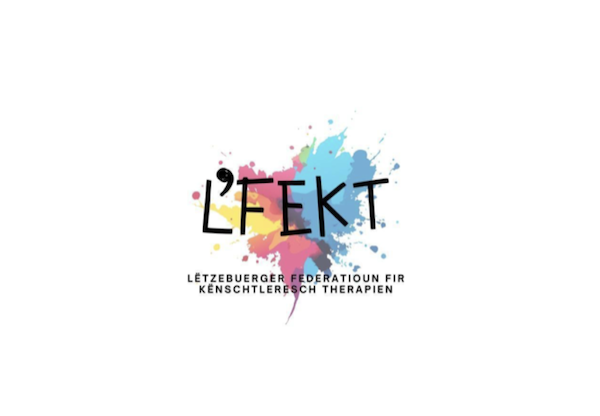
On Tuesday 24 June 2025, Luxembourg’s arts therapy federations (Lëtzebuerger Federatioun fir kënschtleresch Therapien - FEKT) addressed an open letter to Claude Meisch, Luxembourg’s Minister of Education, Children and Youth, calling on the National Office for Children (l’Office national de l’enfance - ONE) to recognise and ensure access to media-based therapies for children and families under its care.
The federation, which includes the Association Luxembourgeoise des Art-thérapeutes Diplômés (ALAtD) and the Gesellschaft fir Musiktherapie zu Lëtzebuerg (GML), joined the meeting with practitioners from across the media therapy sector.
In the letter, FEKT highlighted unlike occupational therapists, psychomotor therapists, psychologists and speech therapists (all of whom benefit from official accreditation by ONE and subsequent reimbursement) media-based therapy remains excluded from this system, despite growing demand.
The federation noted that many families are forced to abandon requests for media-based therapy due to the lack of financial support. In some cases, families turn to therapists with dual qualifications, such as in psychology or occupational therapy, solely to access reimbursement. According to FEKT, this undermines both therapeutic choice and the integrity of professional practice.
FEKT stressed that media-based therapies represent an independent professional field with a rigorous academic framework. Training includes psychopathology, ethics, clinical methodology, supervised internships and the integration of artistic practices as therapeutic tools. These are not considered supplementary modules to other therapeutic professions but form a distinct domain with defined competencies and ethical standards.
The federation described art therapy, music therapy, drama therapy and dance or movement therapy as fully recognised professions, backed by university-level education at Bachelor or Master level. They aim to improve emotional and psychological well-being through structured and supervised use of artistic media in therapeutic settings.
According to FEKT, these therapies are already implemented in several national structures, including Competence Centres, Socio-Therapeutic Centres and specialised child-focused facilities under the Ministry of Education, Children and Youth. Their relevance and impact are acknowledged within these institutions.
The federation also referred to the National Mental Health Plan, which explicitly recommends expanding access to artistic mediation therapies, particularly for children and adolescents with psychological difficulties.
In conclusion, FEKT expressed its willingness to actively engage in discussions or initiatives aimed at advancing the recognition of media-based therapy as a profession, and invited Minister Meisch to consider extending ONE accreditation to include this specialised field.








